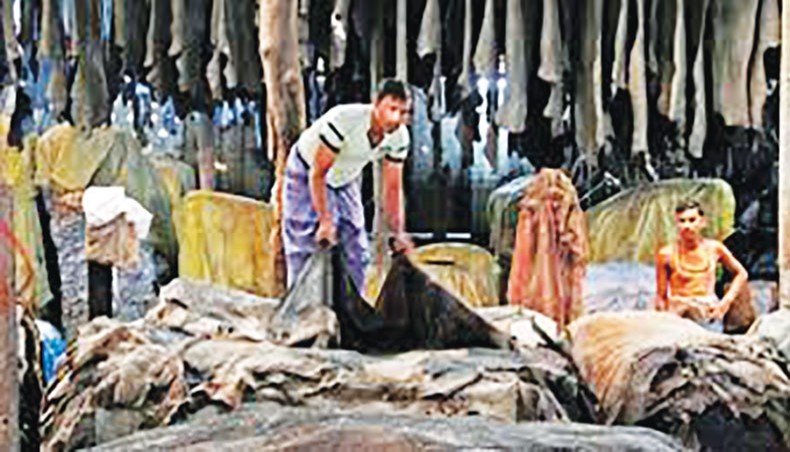Experts and business leaders on Tuesday urged the government to devise a sector-specific policy framework for the leather sector for it to remain competitive on the global market in the face of setbacks suffered due to the coronavirus outbreak.
They also blamed various bottlenecks in the Savar Tannery Industrial Estate, including the dysfunctional central effluent treatment plant and lack of solid waste management, for the loss in the country’s share on the global export market.
At a webinar on ‘Future of Bangladesh Leather Sector in the Aftermath of COVID-19’, experts urged the government to take the necessary measures to achieve the standard of the Leather Working Group in terms of social compliance to retain the export share on the global market.
The Bangladesh Economic Reporters Forum arranged the online event.
‘The leather sector needs a sector-specific, realistic, and modern policy framework to address its longstanding challenges and emerging trends on global and domestic markets,’ said Research and Policy Integration for Development chairman Mohammad Abdur Razzaque.
He underscored the importance of understanding the likely implications of graduating from the least developed country status and the scope of post-LDC export incentives.
Razzaque said that global economic recovery from COVID-19 would now take much longer than initially anticipated and this would have adverse impacts on the demand for exports of leather and leather goods.
He presented the keynote paper at the event that showed the economic recovery would take between three and five years and consumer confidence on the international market would be critical for export revival.
Apex Footwear Ltd managing director Syed Nasim Manzur underscored the need for improving social compliance and making the CETP functional to regain the confidence of global buyers in Bangladeshi leather and leather products.
He urged the government to form a separate agency like the tea board to oversee the leather sector.
Nasim Manzur said that the government should ensure a continuation of policy for at least five years and equal benefits for the leather sector as those enjoyed by the readymade garment sector.
Prime minister’s private industry and investment affairs adviser Salman F Rahman said that the government had solved many of the problems in the tannery states in the last one year and hopefully the rest of the problems would be resolved shortly.
He said that solid waste management was a serious problem and the design of the dumping yard had remained under progress.
Salman said that the government was working to hand over the management of the CETP to a professional firm to obtain the LWG certification.
Bangladesh Finished Leather, Leathergoods and Footwear Exporters Association chairman Mohiuddin Ahmed Mahin said that the sector had failed to attain the export target of $5 billion by 2021 only due to slow implementation of the tannery industrial estate in Savar.
To improve the environment at the Savar Industrial Tannery Estate, the government would have to ensure punishment for non‑compliant units and incentive for complaint ones.
Dhaka University professor M Abu Eusuf said that technical evaluation and compliance of environmental issues of the CETP in accordance with the LWG protocol will be ensured to make CETP fully functional and internationally accredited.
He recommended a five-year plan to revive the leather sector, achieve the LWG certification and build a brand image as a responsible source.
Abu Eusuf suggested that an incentive structure should be implemented for environmental compliance and zeroing tolerance for non-compliance.
He also recommended devising of evidence-based right policy responses for rawhide management, particularly during Eid-ul-Azha.
Commerce secretary Md Jafar Uddin, Asia Foundation country representative Kazi Faisal Bin Seraj and ERF president Saif Islam Dilal, among others, spoke at the event.














